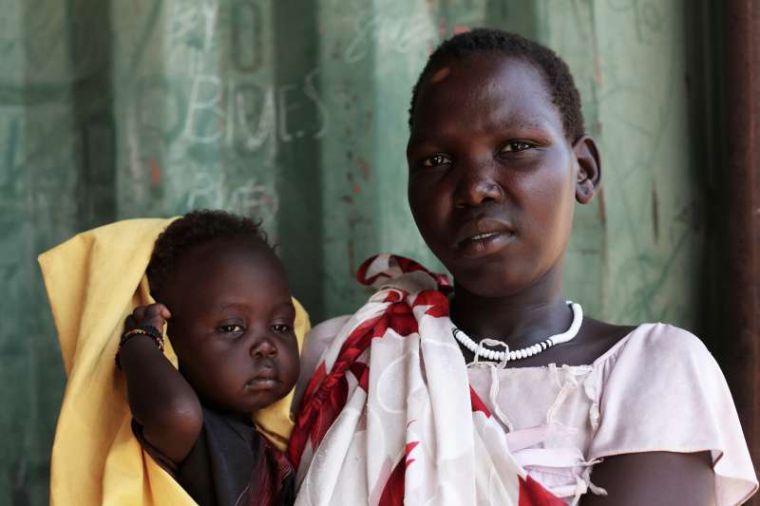How the Church is fighting fake news & Covid-19 in South Sudan

There are not many places less able to deal with a pandemic than South Sudan. The world's youngest country ranks 186 out of 189 on the Human Development Index and is the only country to see negative growth in its HDI score since 2010.
Three quarters of the population don't have access to healthcare and in a country of 11 million people it only has four ventilators for treating acute Covid-19 symptoms. When the first case was declared the whole country was horrified. People had hoped we might be spared. But once we found out it was here the mood in the country changed. Everyone is talking about Covid-19 and how it will impact them.
Since then the pandemic has reached two crowded UN civilian protection sites where physically distancing measures are nearly impossible, posing risks to an estimated 1.5 million people living in such camps country wide. Among those testing positive is Vice President Riek Machar and his wife.
What was particularly worrying was a recent backlash against aid workers after it was discovered that the first reported case of coronavirus in the country was a UN aid worker.
Although the initial UN staff member had been in the country for five weeks before showing symptoms – an unusually long incubation period if they had been infected abroad – the news caused an aggressive response blaming the UN for introducing the virus. One national newspaper ran with the headline 'FOREIGNER' on its front page.
For a country with more than two thirds of the population dependent on humanitarian assistance, this reaction threatened the work of aid agencies who have found their movements restricted. Thankfully a quick response from church leaders helped to dispel the initial reaction.
Senior church leaders such as the head of the Anglican Church and head of the South Sudan Council of Churches went and recorded radio messages explaining the reality of the situation. Then the President followed suit and thankfully this has eased the situation. But in some places we still get people telling us we aid workers brought the disease. For most people there is no difference between UN staff and someone like me who works for Christian Aid.
Church leaders have a powerful platform, especially in South Sudan where 60% of people are Christians and where members of the clergy have taken up an important role in mediating the countries recent civil war. They are known and trusted by their communities and when equipped with the correct knowledge are well placed to advise people. A key lesson from the global response to the Ebola outbreak was that not investing early enough in the frontline work of faith leaders and faith-based organisations cost lives.
A new report published by Christian Aid lays out some recommendations about how the pandemic can be tackled in developing countries. In South Sudan any Covid-19 response will only be effective if the recent peace deal holds. This agreement is welcome but the transition to a full unity government is not moving quickly enough.
And with tensions still high there is still a lot of low level conflict and unresolved grievances. It's vital church leaders do not relax but continue to play their key role in both top level negotiations as well as community level conflict resolution and peace building.
It's still too early to tell what the impact of Covid-19 will be on South Sudan but whatever happens the role of the Church will be vital to ensure the country overcomes its challenges and works towards a brighter future.
James Wani is Christian Aid's Senior Programme Manager for South Sudan. To donate to Christian Aid Week which this year is all about tackling coronavirus in some of the world's poorest countries like South Sudan visit caweek.org











